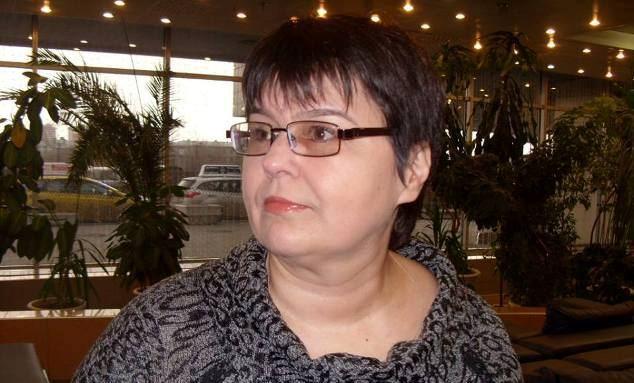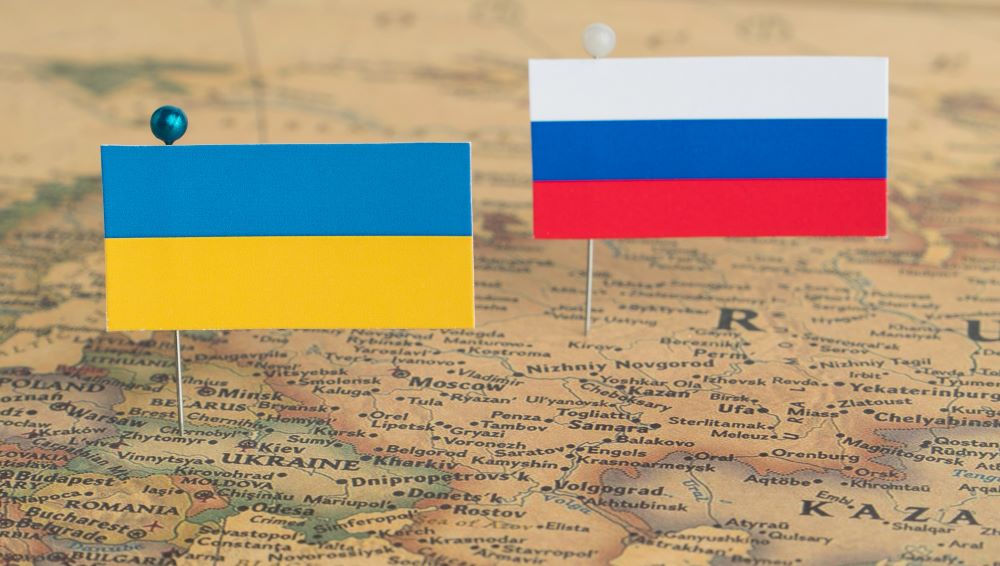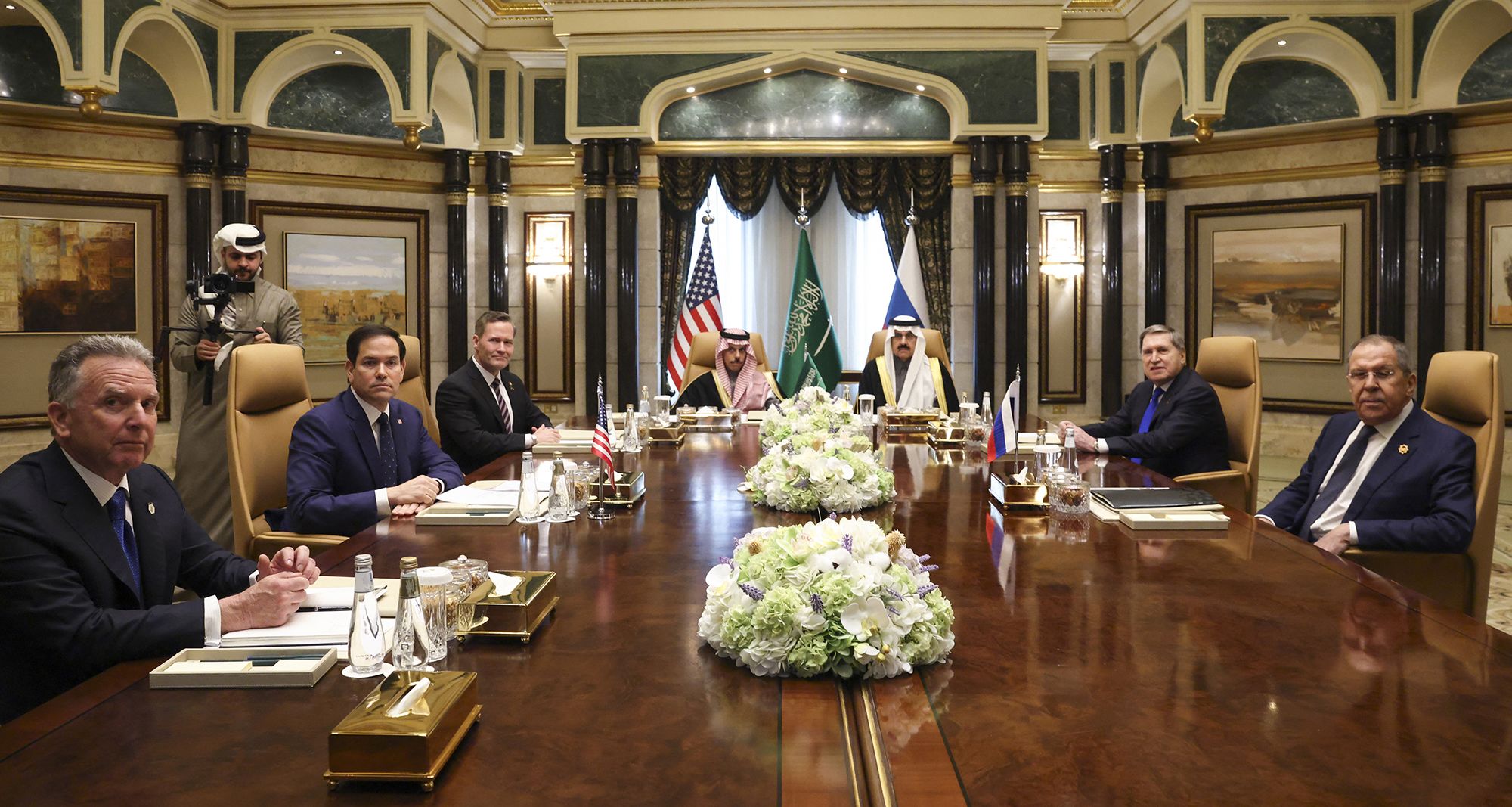By Maria Zhigadlo
The recent Russia-U.S. negotiations in Riyadh have sparked discussions about a potential shift in bilateral relations.
. With Donald Trump back in the White House, Washington appears to be taking a more pragmatic approach toward Moscow. The suspension of financial aid to Ukraine, the prospect of renewed economic cooperation, and the possibility of a meeting between Vladimir Putin and Trump suggest that both sides are seeking a new format for engagement. How significant are these developments? Could they pave the way for a resolution to the Ukraine conflict? And what role do global economic and diplomatic factors play in shaping Russia-U.S. relations? To gain a deeper understanding, News.Az spoke with Russian political analyst Tatyana Poloskova, who shared her insights on the outcomes of the Riyadh talks, the evolving dynamics between Moscow and Washington, and the key challenges ahead.

-What are the key outcomes of the Russia-U.S. negotiations in Riyadh? Can we talk about a rapprochement between Moscow and Washington?
-The rapprochement is evident and is primarily driven by the fact that newly elected U.S. President Donald Trump and his team are pragmatists focused on national interests rather than ideological dogmas from the Cold War era. It is clear that confrontation with Russia harms the U.S. economy, particularly business, which has always been a priority. American policy traditionally operates on the principle: "What is good for General Motors is good for America." Moreover, the U.S. often functions more like a corporation than a classical state.
Trump is an experienced businessman accustomed to making deals, including in politics. It is no coincidence that he refers to the future agreement on the resolution of the Ukraine conflict as a "deal." For him, every political step must have an economic rationale. In this context, trust between the parties is a key aspect of successful negotiations. This is why Vladimir Putin emphasized that the purpose of the meeting in Riyadh was to enhance the level of trust between Russia and the U.S.
What was achieved during the negotiations? According to the Russian president, "Russia has taken the first step toward resuming work with the U.S. in various areas of mutual interest, including in the Middle East." Putin also noted that the dialogue between Russia and the U.S. does not require intermediaries and that the American side introduced new negotiators at the meeting, free from bias. It was decided to restore the work of diplomatic missions, as the policy of mutual expulsions of diplomats leads nowhere.
Russian financier and CEO of the Russian Direct Investment Fund (RDIF), Kirill Dmitriev, played a significant role in organizing the meeting. He served as a key intermediary, speaking the same language as Trump's team.
Russia is interested in dialogue with the U.S., and this meeting is an encouraging step forward. However, caution remains necessary, as in any major deal. Personally, I see this as a positive signal because, back in 2018, I participated in a conference at the University of Vermont (USA), where we discussed the role of expert communities in developing Russian-American dialogue. At that time, Trump, already as president, was calling for the activation of expert cooperation, and perhaps this format will soon become relevant again.

-What is the main goal of establishing contact between Russian and U.S. negotiating teams on Ukraine? What issues will they discuss?
-The primary issue is what measures are necessary to bring the conflict to an end. This is where Moscow and Washington need to find common ground, but it is one of the most complex challenges in diplomacy.
The U.S. administration has already taken several steps indicating a change in course. Specifically, funding for Ukraine has been suspended, as have arms supplies. Moreover, Washington has demanded that Volodymyr Zelensky provide a report on the expenditure of previously allocated funds.
According to U.S. Secretary of State Marco Rubio, the issue of the territorial status of Ukrainian regions was not raised during the negotiations in Riyadh—the priority was discussing prospects for a peaceful resolution. At the same time, the topic of sanctions has not yet been addressed, although Rubio hinted that if the U.S. lifts restrictions, the European Union will have to follow suit.
It is also important to note that Washington's trust in Zelensky has been practically lost, and this began under Biden. According to Rubio, Zelensky failed to fulfill his promise to submit a bill on mineral resources to the Verkhovna Rada, which frustrated the American leadership.
Beyond the Ukrainian issue, economic matters were also discussed in Riyadh. According to Kirill Dmitriev, American oil companies will eventually return to the Russian market, as sanctions have cost them over $300 billion in losses. The return of American automakers to Russia is also possible, though this will depend on the conditions set by Moscow.
The return of American businesses to Russia may face resistance from China, which has firmly established itself in the Russian market over the years of sanctions. However, competition in the economy is inevitable, and in the end, Russia stands to benefit.

-How likely is a meeting between Vladimir Putin and Donald Trump in the near future? What conditions need to be created for it to take place?
-A meeting is likely to happen soon. Vladimir Putin has already stated that he is ready to meet with Trump and senses mutual interest on his part. However, such a meeting must be carefully prepared.
Kremlin spokesman Dmitry Peskov has repeatedly emphasized that it is difficult to name a specific timeline, despite both sides’ readiness. According to Marco Rubio, the Russia-U.S. presidential meeting should be substantive and will largely depend on progress in negotiations on Ukraine.
It is clear that preparations for the meeting are already underway. However, the outcome could be either historic or unproductive—such a risk also exists.

-How could Ukraine’s absence from the negotiations in Saudi Arabia affect the prospects for resolving the conflict?
-Let’s be realistic: the fate of major conflicts is decided by global powers, and Ukraine is no exception. Unlike European leaders, Trump does not support rhetoric about isolating Russia; he openly states that he will discuss Ukraine’s future directly with Vladimir Putin.
For its part, Moscow has also expressed willingness to engage in dialogue with the new U.S. administration. On Inauguration Day, Putin sent Trump a congratulatory message, and at a meeting of Russia’s Security Council, he declared his openness to negotiations on Ukraine.
Trump understands that global politics is shaped by a handful of major players, including Russia. The collective West is facing significant economic, financial, and political challenges, which weakens its influence.
It is worth noting that Trump approaches the Ukraine issue with pragmatism. His use of the term "deal" in relation to conflict resolution indicates that decisions must be based on tangible benefits for all parties involved.
The question is: who will represent Ukraine’s interests when the time comes for serious negotiations? It is unlikely that discussions will involve Zelensky, and he himself does not seem particularly eager to participate.

-What stance did the Russian side take in the negotiations regarding bilateral relations with the U.S.? What areas of cooperation are Moscow and Washington ready to develop?
-Russia is committed to dialogue. One of the key decisions of the meeting was the restoration of full-fledged diplomatic missions. This is critically important, as diplomacy plays a key role not only in bilateral relations but also in global security.
Moscow and Washington could cooperate in various areas, including energy, economics, and strategic stability. However, much will depend on how willing the U.S. is to genuinely reconsider its policy toward Russia.

